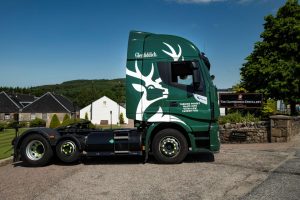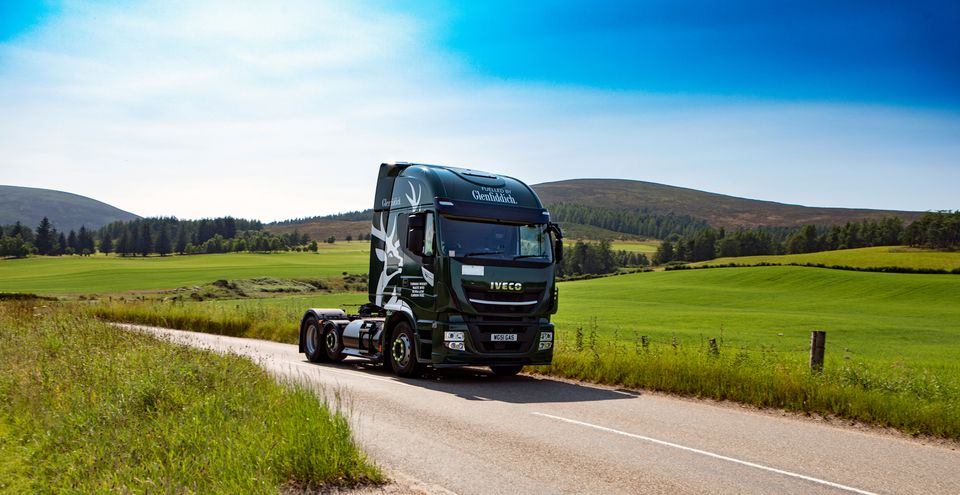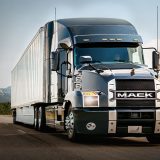Whiskey residue powering fleet
Scotch whiskey distiller Glenfiddich is using waste from its whiskey-making process to produce renewable natural gas, which then is used to power its fleet of delivery trucks.

Whiskey Residue Powering Fleet – Scotch whiskey distiller Glenfiddich is using waste from its whiskey-making process to produce renewable natural gas, which then is used to power its fleet of delivery trucks.
Glenfiddich is leading a sustainability initiative to address the Scotch Whisky Association’s climate change targets of net zero greenhouse gas (GHG) emissions by 2040. To obtain these reduction levels, Glenfiddich is using renewable natural gas (RNG) derived from its production waste residues to power its fleet of delivery trucks, equipped with Hexagon Agility’s ProRail compressed natural gas fuel systems.

Whiskey Residue Powering Fleet – Glenfiddich is leading a sustainability initiative to address the Scotch Whisky Association’s climate change targets… (View of the Glenfiddich truck, that runs on whiskey-by-product based biogas, in Dufftown, Scotland, Britain. Courtesy of William Grant & Sons/Handout via REUTERS)
The technology was developed by its parent company William Grant & Sons
“It has taken more than a decade for Glenfiddich to become the first distillery to process 100 percent of its waste residues on its own site, then to be the first to process those residues into RNG fuel to power its trucks, and finally to be the first to install an RNG truck fueling station supplied by our on-site renewable energy facility,” said Kirsty Dagnan, site leader for William Grant & Sons.
Enjoying our insights?
Subscribe to our newsletter to keep up with the latest industry trends and developments.
Stay Informed“…the first to install an RNG truck fueling station supplied by our on-site renewable energy facility,” said Kirsty Dagnan, site leader for William Grant & Sons
“We are proud to have achieved these renewable energy breakthroughs in our industry, and to be working with a pioneering partner such as Hexagon Agility as we scale up the de-carbonizing benefits of this closed-loop process across our entire transport fleet.”
RNG, made from organic waste, is a pipeline-quality gas fully interchangeable with compressed natural gas (CNG). The RNG produced by Grissan will reduce GHG emissions up to 95 percent when compared to diesel and other fossil fuels, according to company officials.
“We congratulate Glenfiddich in becoming the first whisky distillery to process 100% of its waste residues into RNG to power its trucks,’’ said Eric Bippus, Hexagon Agility’s senior vp of global sales and marketing
“We congratulate Glenfiddich in becoming the first whisky distillery to process 100 percent of its waste residues into RNG to power its trucks,’’ said Eric Bippus, Hexagon Agility’s senior vice president of global sales and marketing. “RNG is a game-changer, not only for whisky distilleries but also for the heavy-duty trucking industry looking for the lowest-emission fuel available today.’’























